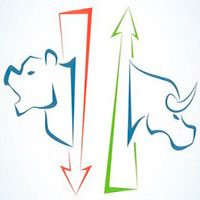After a big loss, confidence can be running low. Of course, there are many reasons why traders lose money, such as lack of market knowledge, a poor risk management strategy or making trading decisions based on emotions, whether they be greed-based or fear-based. However, once a trader loses confidence, this can act as a serious dent in their trading performance. So, the question is how can you maintain confidence even after you encounter a losing streak?
If your confidence has been beaten down by the markets, here are three simple steps you can take immediately to rebuild your confidence in trading and get yourself back on track.
Take Responsibility for Your Trades
Every trader has bad days. But, when things go wrong, you have to take responsibility and try to figure out what could have been done differently to prevent such a loss. Think about where you fell short. For example, did you take too much risk? Was the trade according to the plan? Or did you let your emotions run your trade?
It’s also a good idea to stop trading until you have worked out what happened. Learning from unsuccessful trades is one of the best ways to improve your overall trading performance. Remember, if you’re not in control of your trading, then you can fix it. When you take responsibility, you control your trading — and that's exactly where you want.
Focus on a Solid Trading Plan
If you’ve experienced a huge loss, get back to basics. Focus on your trading strategy (with any changes made to it) and your implementation of it. A solid trading plan separates successful traders from others. Before jumping back into the trading world after a loss, you need to have a comprehensive trading plan in place that takes into consideration your trading style and risk tolerance levels.
Your plan must also incorporate strict risk management practices. After all, a trader who has generated profits can lose it all in just one or two failed traders without a proper risk management strategy.
Don’t Take Losses Personally
Losses are an integral part of trading. A successful trader is the one who can stay level-headed even after a loss. By having vigor and resilience, you stop taking losses personally and therefore become a better trader.
But when you lack vigor in trading, you feel frustrated and disappointed following a loss. Because of that, your ability to make rational and objective trading decisions is compromised and you end up taking revenge trades or end up quitting. A great way to react to losses is to analyze the outcomes, review the trade setup, and figure out what went wrong.
The Bottom Line
When your trading plan is solid, well-constructed, and is in alignment with your goals and risk tolerance levels, you will find yourself feeling quite confident and secure in your trading. And remember! Losing money is not the end. In order to succeed in trading, you must embrace the risk of potentially losing trades.

















